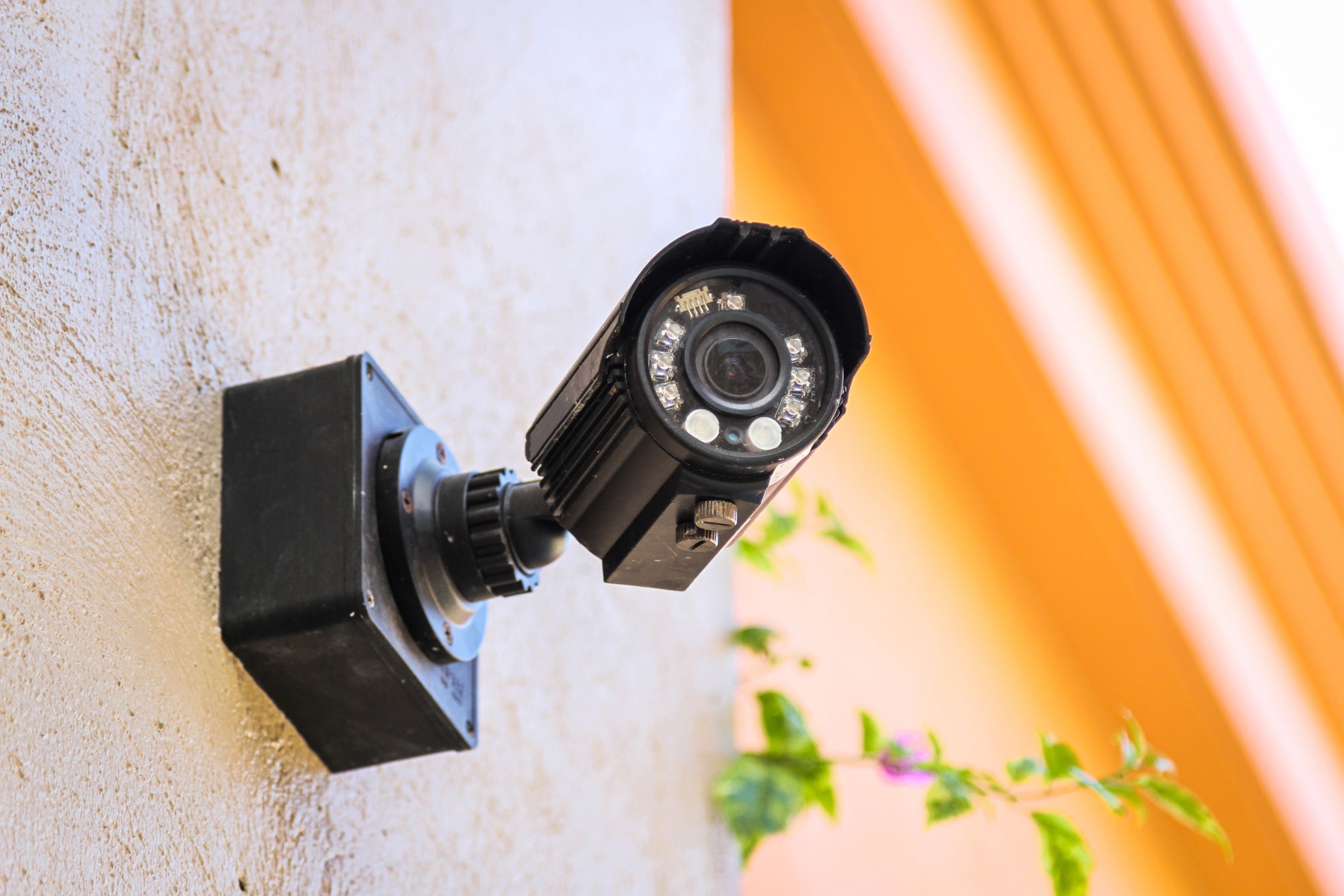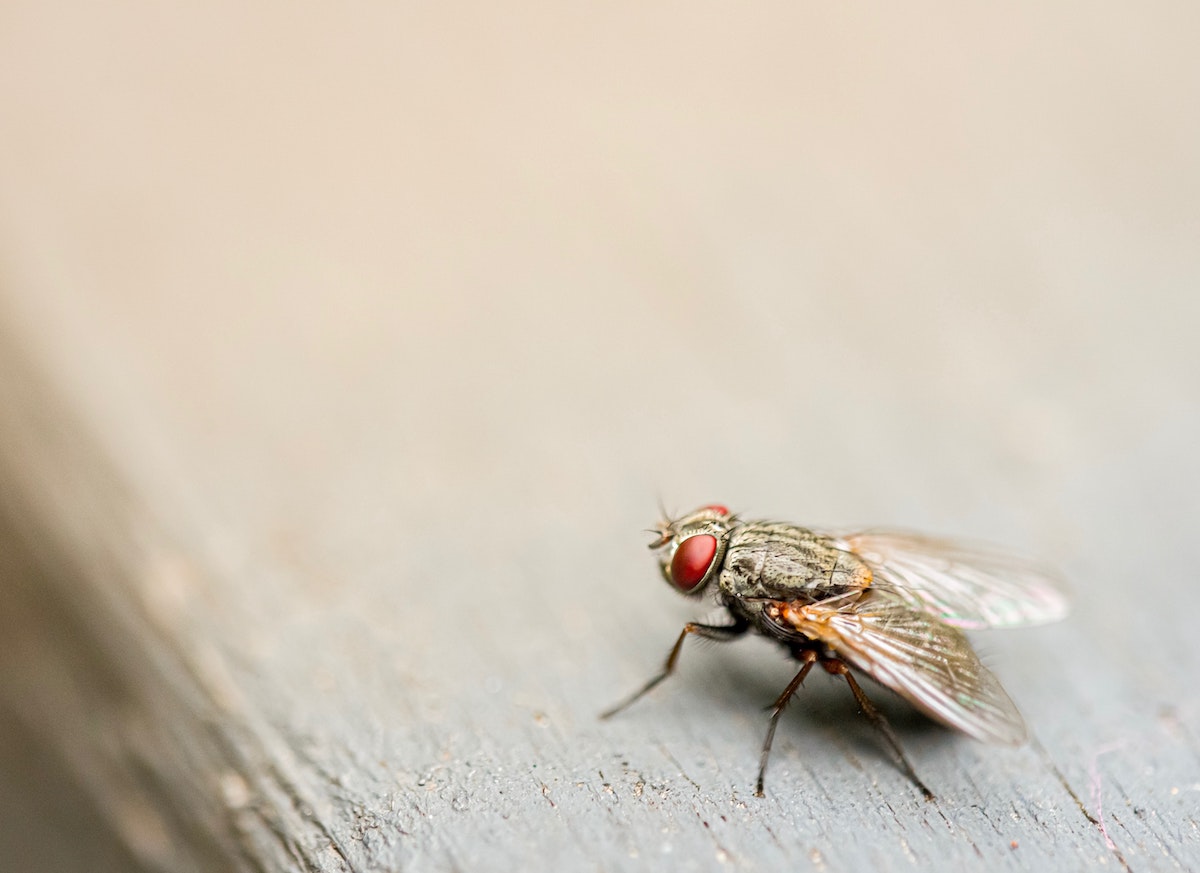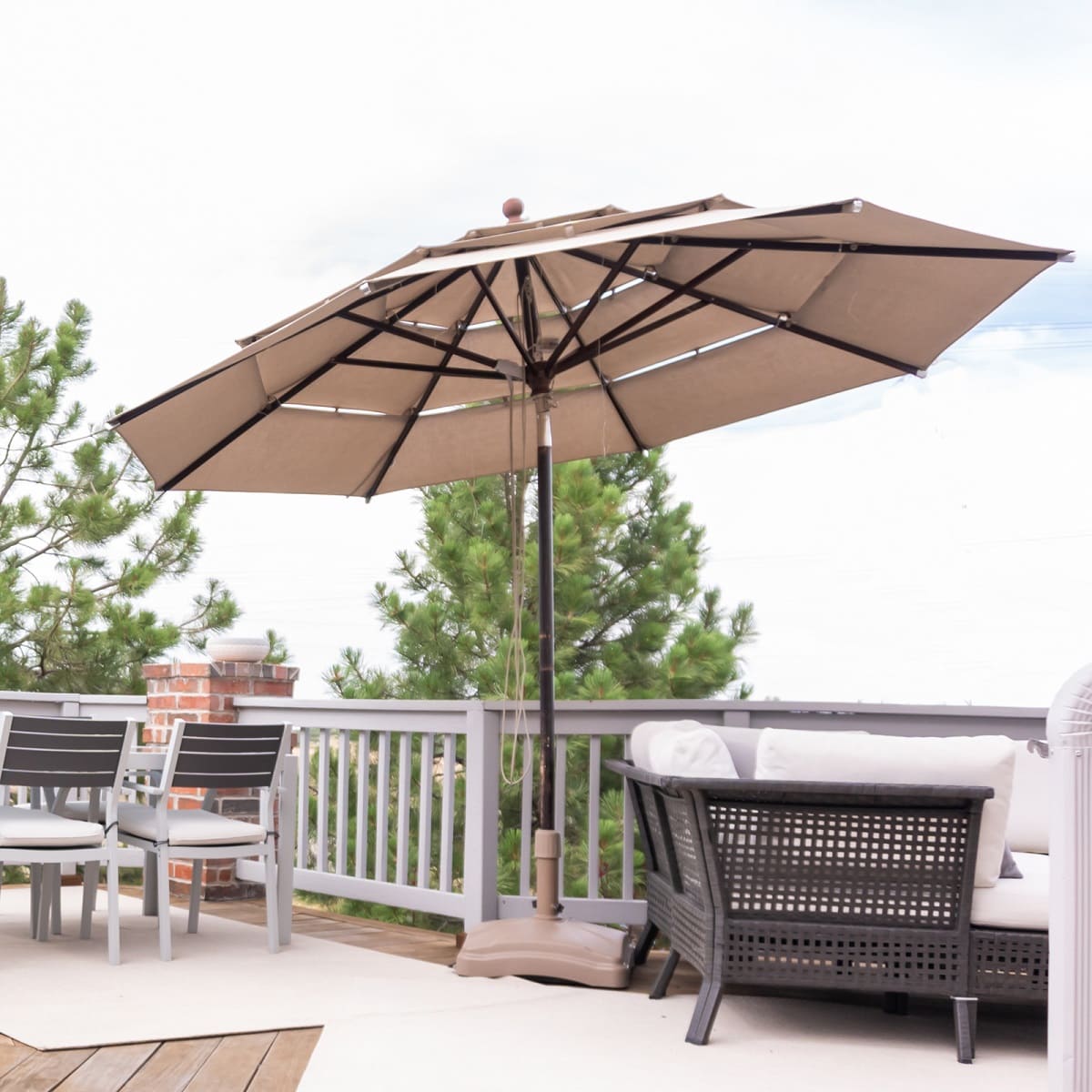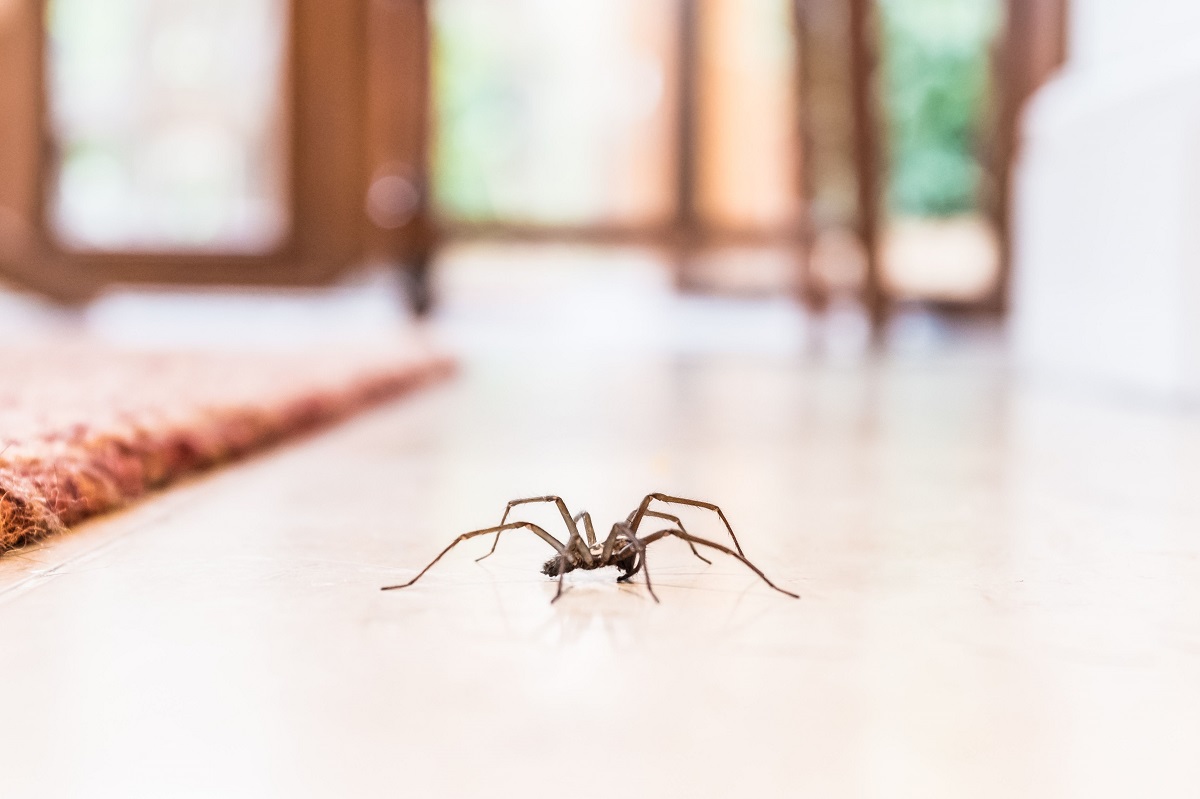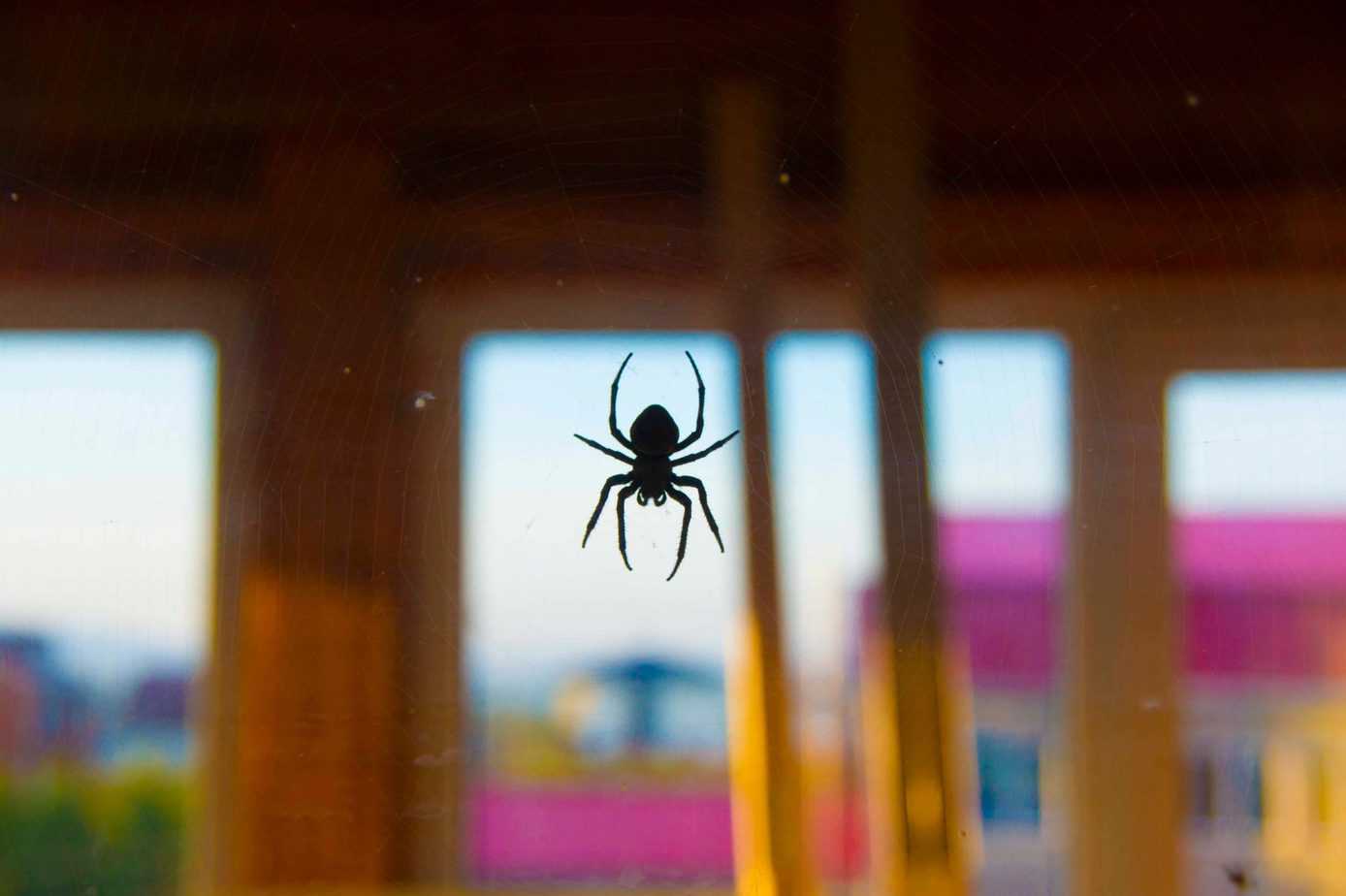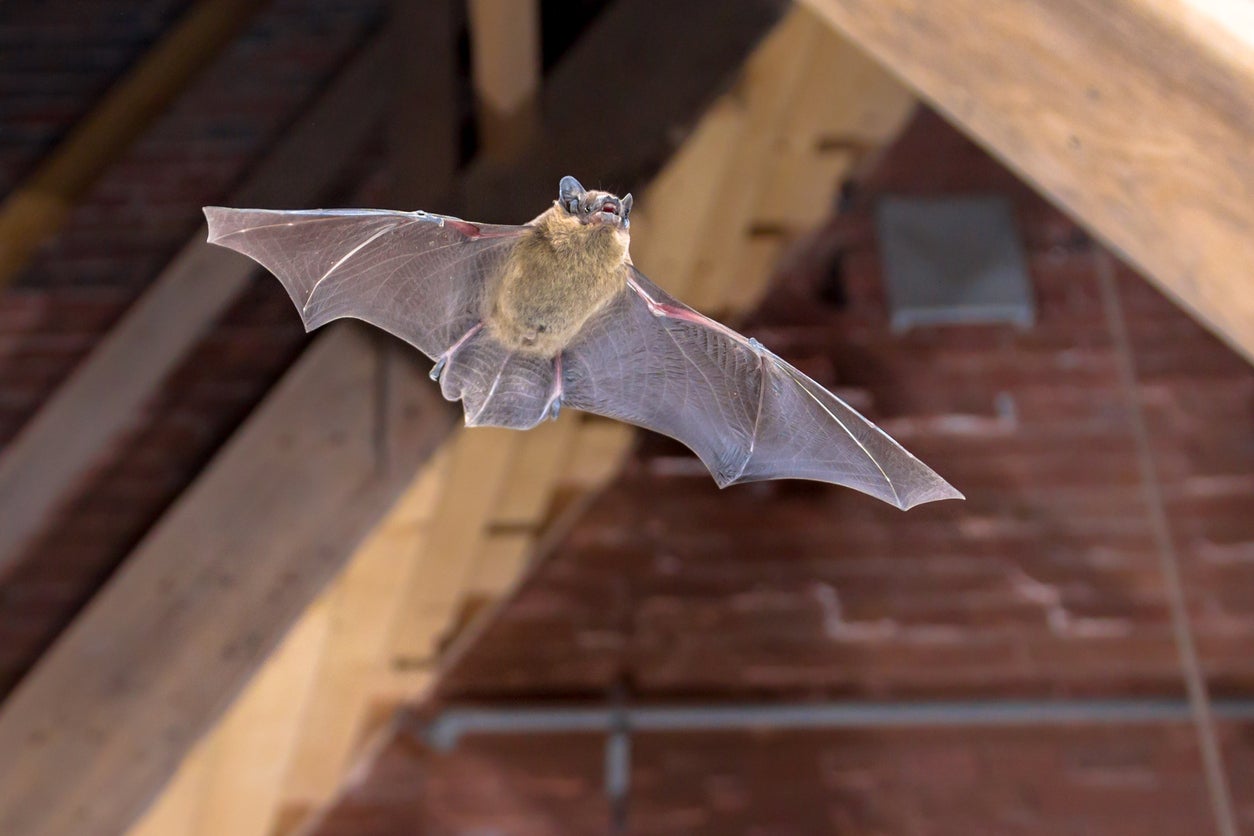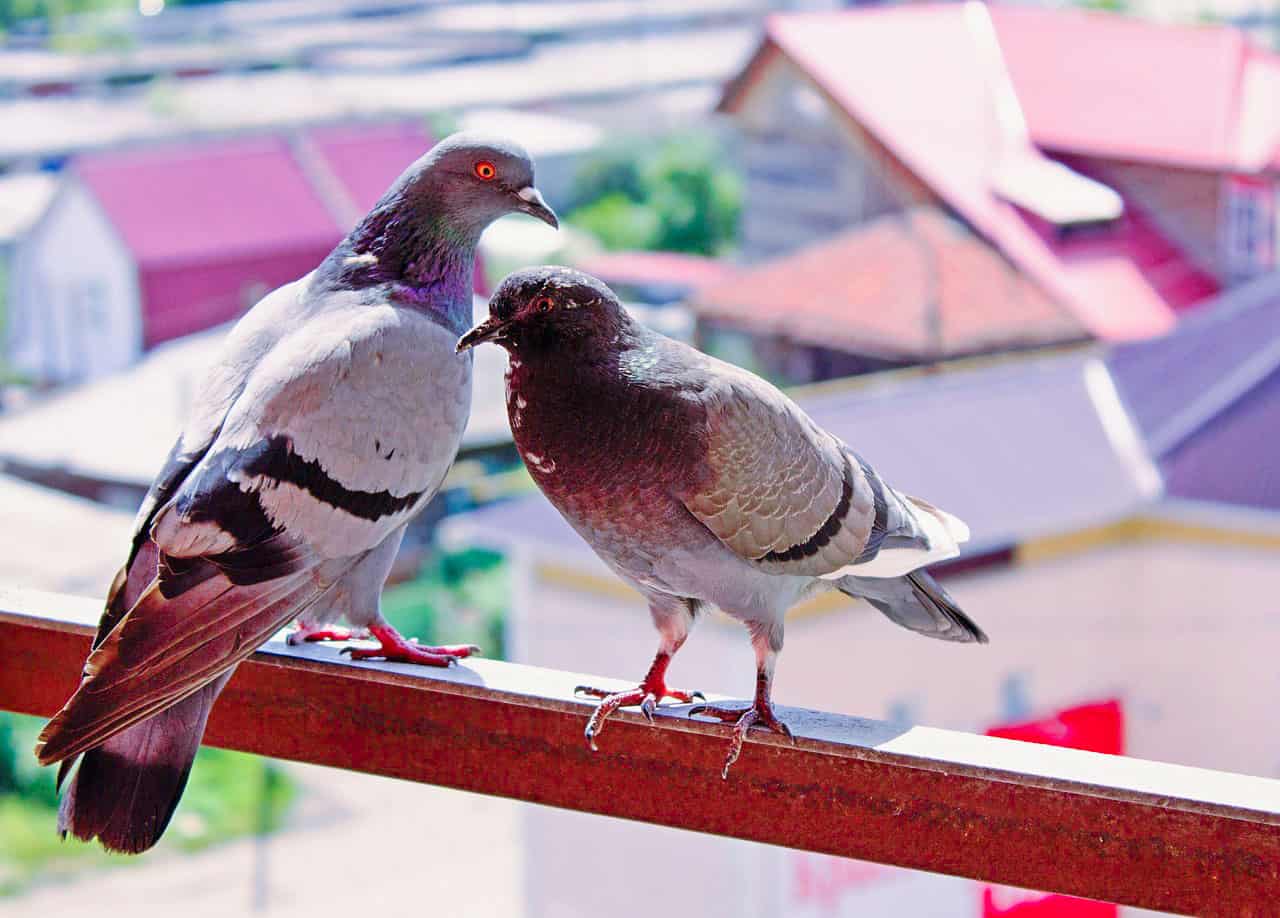Home>Home Security and Surveillance>How To Keep Spiders Away From Outdoor Cameras
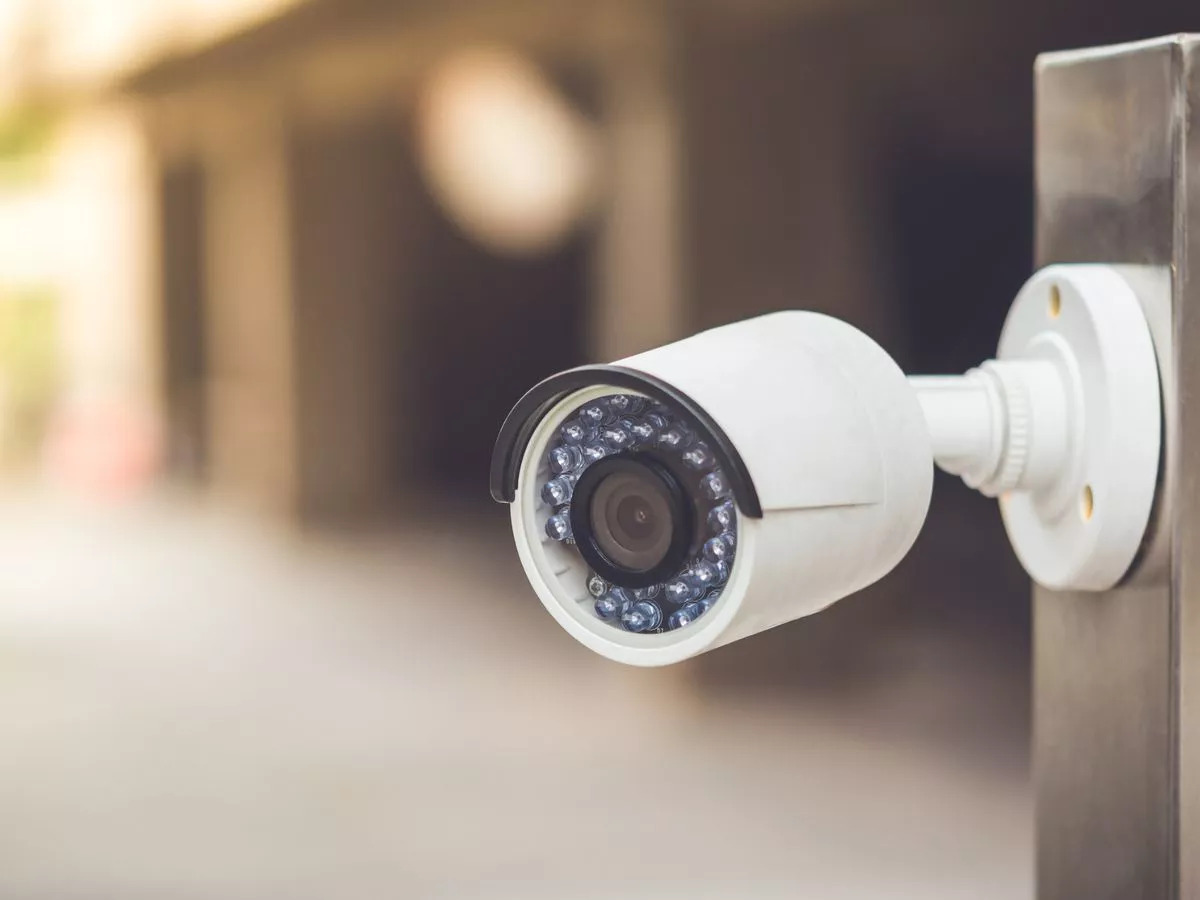

Home Security and Surveillance
How To Keep Spiders Away From Outdoor Cameras
Modified: March 6, 2024
Learn effective ways to keep spiders away from your outdoor cameras and improve the security of your home with our home security and surveillance tips.
(Many of the links in this article redirect to a specific reviewed product. Your purchase of these products through affiliate links helps to generate commission for Storables.com, at no extra cost. Learn more)
Introduction
Welcome to our guide on how to keep spiders away from outdoor cameras. Home security and surveillance systems are essential for keeping our homes safe, but these devices are not immune to unwelcome visitors, including spiders. While spiders play a crucial role in our ecosystem by controlling other pests, having them nest in and around outdoor cameras can interfere with their functionality and image quality.
Spiders are attracted to outdoor cameras for various reasons. One of the main factors is the warmth generated by the devices. Spiders seek out warm places to build their webs and lay their eggs, making outdoor cameras a prime location. Additionally, the presence of insects around the camera can also attract spiders, as they rely on a steady source of food.
However, there are several precautions and preventative measures you can take to discourage spiders from nesting on your outdoor cameras. In this guide, we will explore these methods, ranging from natural deterrents to commercial spider repellents, as well as regular maintenance and cleaning practices.
By implementing these strategies, you can ensure that your outdoor cameras remain spider-free, optimizing their performance and preserving the quality of your home surveillance system. So, let’s dive in and explore how to keep spiders away from your outdoor cameras!
Key Takeaways:
- Keep spiders away from outdoor cameras by strategic placement, sealing entry points, and using natural deterrents like peppermint oil and vinegar. Regular cleaning and maintenance are also crucial in deterring spiders.
- Consider commercial spider repellents if natural methods are ineffective. Ultrasonic devices, sprays, pouches, and gels can provide an additional layer of protection. Regularly refresh natural repellents and follow manufacturer’s guidelines.
Read more: How To Keep Spiders Away From Outdoor Lights
Understanding the Attraction of Spiders to Outdoor Cameras
Before we delve into the methods of keeping spiders away from outdoor cameras, it’s important to understand why these eight-legged creatures find them so appealing in the first place. By understanding their attraction, we can better address the issue and implement effective preventative measures.
Spiders are drawn to outdoor cameras for a few specific reasons:
- Warmth: Outdoor cameras generate heat, especially when they are actively recording or when the weather is colder. This warmth is attractive to spiders, as it provides them with a cozy environment to build their webs and lay their eggs.
- Insects: Outdoor cameras often attract insects such as flies, mosquitoes, and other small bugs. Spiders are opportunistic predators and thrive on a diet of insects. When they find a steady source of food near the camera, they are more inclined to stay and build their webs.
- Hidden and Undisturbed: Outdoor cameras are typically mounted in strategic locations that offer an elevated vantage point without much disturbance. This provides an ideal setting for spiders to spin their webs, as they are less likely to be disturbed by human activity.
It’s important to note that not all spiders are harmful or pose a significant threat. In fact, most spiders are beneficial in controlling the population of other pests. However, the presence of spider webs on outdoor cameras can interfere with their functionality and obstruct the lens, affecting the image quality and surveillance coverage.
Now that we understand why spiders are attracted to outdoor cameras, let’s explore the essential precautions and preventative measures you can take to keep spiders away and maintain the optimal performance of your home security system.
Essential Precautions to Prevent Spiders from Nesting on Outdoor Cameras
To ensure that spiders do not build their webs or nest on your outdoor cameras, it is important to take some essential precautions. By implementing these measures, you can create an environment that is less attractive to spiders and discourage them from making your cameras their home. Here are some key precautions to consider:
- Strategic camera placement: When installing your outdoor cameras, consider their placement carefully. Try to position them away from areas with overhanging trees, bushes, or other structures that spiders might use to access the cameras.
- Seal entry points: Inspect the areas around your cameras for any gaps or openings that spiders could use to crawl inside. Seal these entry points using caulk or weatherstripping to prevent spiders from accessing the cameras.
- Remove nearby debris: Spiders are attracted to cluttered areas where they can build their webs undisturbed. Clear away any debris, such as leaves, branches, or other objects, that could provide a suitable nesting spot for spiders.
- Use insect repellents: Since spiders are attracted to insects, using insect repellents near your outdoor cameras can help reduce the spider population. Look for insect repellents specifically designed for outdoor use and apply them in the vicinity of your cameras.
- Install motion-activated lights: Spiders are nocturnal creatures and are often drawn to well-lit areas. By installing motion-activated lights near your outdoor cameras, you can deter spiders from approaching them while still providing adequate illumination for security purposes.
- Regularly inspect and clean: Make it a habit to inspect your outdoor cameras regularly for any signs of spider webs or nests. If you notice any, carefully remove them using a broom or vacuum cleaner. Regular cleaning will discourage spiders from returning to the area.
- Utilize natural deterrents: There are several natural substances that spiders dislike and can be used as deterrents. Peppermint oil, vinegar, citrus peel, and chestnuts are examples of natural repellents that can be placed near your cameras to discourage spiders.
By implementing these precautions, you can significantly reduce the likelihood of spiders nesting on your outdoor cameras. However, if spiders persist despite your efforts, there are commercial spider repellents available that can provide additional protection.
Natural Methods to Repel Spiders from Outdoor Cameras
If you prefer to use natural methods to repel spiders from your outdoor cameras, there are several options available that can be effective in deterring these eight-legged critters. Here are some natural methods you can try:
- Peppermint oil: Spiders are known to dislike the scent of peppermint. To create a spider repellent spray, mix 10-15 drops of peppermint essential oil with water in a spray bottle. Spray this solution around your outdoor cameras and in their vicinity to discourage spiders.
- Vinegar: Another natural repellent is vinegar. Fill a spray bottle with equal parts water and white vinegar. Spritz the solution around your outdoor cameras and any areas where spiders might be inclined to build their webs.
- Citrus peel: Spiders also dislike the smell of citrus. Save your leftover citrus peels, such as lemon or orange, and place them near your outdoor cameras. The scent will repel spiders and make them less likely to nest in the area.
- Chestnuts: Chestnuts contain a compound called saponin, which is known to repel spiders. Place a few chestnuts near your outdoor cameras to deter spiders from getting too close.
- Eucalyptus branches: Spiders have an aversion to eucalyptus. If you have access to eucalyptus branches or leaves, place them strategically around your outdoor cameras to keep spiders at bay.
- Cedar wood chips: Cedar wood contains natural compounds that spiders find unpleasant. Spread cedar wood chips or shavings near your outdoor cameras to create a natural deterrent. This can also help prevent other pests, such as ants and moths, from approaching the cameras.
Remember to refresh these natural repellents regularly, as their effectiveness may diminish over time. Additionally, be cautious when using oils or strong scents near the cameras, as they may affect the camera or its functionality. Always consider the specific camera manufacturer’s guidelines when implementing natural methods around your outdoor cameras.
While natural methods can be effective in repelling spiders, it’s important to note that results may vary. If you find that natural deterrents are not sufficient in keeping spiders away from your outdoor cameras, there are commercial spider repellents available on the market that you can consider.
Keep spiders away from outdoor cameras by regularly cleaning the area around the camera to remove any webs or egg sacs. You can also use a natural spider repellent like peppermint oil or vinegar to deter them from building webs.
Commercial Spider Repellents for Outdoor Cameras
If natural methods prove ineffective in repelling spiders from your outdoor cameras, you may want to explore commercial spider repellent options. These products are specifically formulated to deter spiders and can provide an additional layer of protection. Here are some commercial spider repellents to consider:
- Spider repellent sprays: There are various spider repellent sprays available that are designed to repel spiders and discourage them from nesting. These sprays usually contain chemical compounds that are safe for outdoor use and can be sprayed directly on and around your outdoor cameras.
- Ultrasonic spider repellents: Ultrasonic repellent devices emit high-frequency sound waves that are unbearable to spiders and other pests. These devices can be placed near your outdoor cameras to create a barrier and repel spiders without using chemicals or odors.
- Spider repellent pouches or sachets: These pouches or sachets typically contain a blend of natural and synthetic ingredients that spiders find repulsive. They can be hung or placed near your outdoor cameras to deter spiders. These pouches often have a long-lasting effect, but it’s important to follow the manufacturer’s instructions for optimal usage.
- Gel spider repellents: Gel repellents come in a convenient tube or container and can be applied directly to surfaces around your outdoor cameras. These gels usually contain ingredients that spiders find unpleasant, creating a barrier that repels them.
When using commercial spider repellents, be sure to carefully read and follow the instructions provided by the manufacturer. Pay attention to any safety precautions or recommended usage guidelines to ensure proper application and effectiveness.
It’s important to note that while commercial spider repellents can be effective, they may require regular reapplication to maintain their deterrent effect. Additionally, consider the specific needs and compatibility of your outdoor camera system when selecting and using commercial spider repellents.
By combining natural methods with commercial spider repellents, you can create a multi-layered approach to keep spiders away from your outdoor cameras and maintain their optimal performance.
Regular Maintenance and Cleaning of Outdoor Cameras to Deter Spiders
In addition to preventive measures and repellents, regular maintenance and cleaning of your outdoor cameras are essential to deter spiders from nesting on them. By implementing a consistent cleaning routine, you can discourage spiders from making your cameras their home. Here are some maintenance tips to consider:
- Inspect your cameras: Regularly inspect the exterior of your outdoor cameras for any signs of spider webs, egg sacs, or nests. Check the corners, edges, and crevices where spiders are most likely to build their webs. If you notice any spider activity, take prompt action to remove them.
- Remove spider webs: Using a soft-bristle brush or a broom, gently remove any spider webs around your outdoor cameras. Be careful not to damage any delicate camera components during the process.
- Consider a camera housing: A camera housing or enclosure can provide an added layer of protection against spiders. These housings are designed to fit over the camera, creating a physical barrier between the spiders and the lens. Ensure that the housing you choose is compatible with your specific camera model.
- Keep the area clean: Regularly clean the area surrounding your outdoor cameras to remove any debris, dead insects, or other organic matter that may attract spiders. Use a broom or a leaf blower to clear away leaves, grass clippings, and other outdoor debris.
- Trim vegetation: Trim back any vegetation, such as shrubs, bushes, or trees, that may come into contact with your outdoor cameras. By keeping the area around the cameras clear, you minimize potential access points for spiders.
- Regularly clean camera lenses: Dust and debris on camera lenses can obstruct the view and impact image quality. Use a soft cloth or lens cleaning solution recommended by the camera manufacturer to clean the lenses regularly. Ensure that the cloth is lint-free and gentle to avoid scratching the lens.
- Consider professional cleaning: If you notice persistent spider activity or have a significant buildup of dirt and grime on your outdoor cameras, it may be beneficial to seek professional cleaning. Professional technicians have the expertise and tools to clean the cameras thoroughly without causing damage.
By implementing these maintenance practices, you create an environment that is less appealing to spiders. Regularly cleaning your outdoor cameras not only helps deter spiders but also ensures optimal performance, clear images, and a longer lifespan for your surveillance system.
Remember to refer to the specific maintenance guidelines provided by the camera manufacturer for best practices and any camera model-specific instructions.
Conclusion
Keeping spiders away from outdoor cameras is essential for maintaining the optimal performance and functionality of your home security and surveillance system. While spiders play an important role in our ecosystem, their presence on outdoor cameras can obstruct the lenses, affect image quality, and potentially interfere with the overall effectiveness of the system.
Through a combination of essential precautions, natural methods, commercial spider repellents, and regular maintenance, you can effectively deter spiders from nesting on your outdoor cameras. Strategic camera placement, sealing entry points, removing nearby debris, and using insect repellents are important precautions to consider. Additionally, natural methods such as peppermint oil, vinegar, citrus peels, and cedar wood chips can act as natural deterrents. Commercial spider repellents, such as sprays, ultrasonic devices, pouches, or gels, provide an additional layer of protection.
Regular maintenance and cleaning of your outdoor cameras are crucial steps in deterring spiders. By inspecting the cameras, removing spider webs, keeping the area clean, trimming vegetation, and regularly cleaning the camera lenses, you can create an environment that is less attractive to spiders.
Remember, prevention and consistency are key in keeping spiders away from your outdoor cameras. By implementing these preventive measures and incorporating regular maintenance into your routine, you can enjoy a spider-free surveillance system that functions optimally.
Always refer to the specific guidelines provided by the camera manufacturer for the best practices and recommendations tailored to your camera model. With these strategies in place, you can ensure your outdoor cameras remain free from spider intrusion, providing you with peace of mind and reliable home security surveillance.
Frequently Asked Questions about How To Keep Spiders Away From Outdoor Cameras
Was this page helpful?
At Storables.com, we guarantee accurate and reliable information. Our content, validated by Expert Board Contributors, is crafted following stringent Editorial Policies. We're committed to providing you with well-researched, expert-backed insights for all your informational needs.
